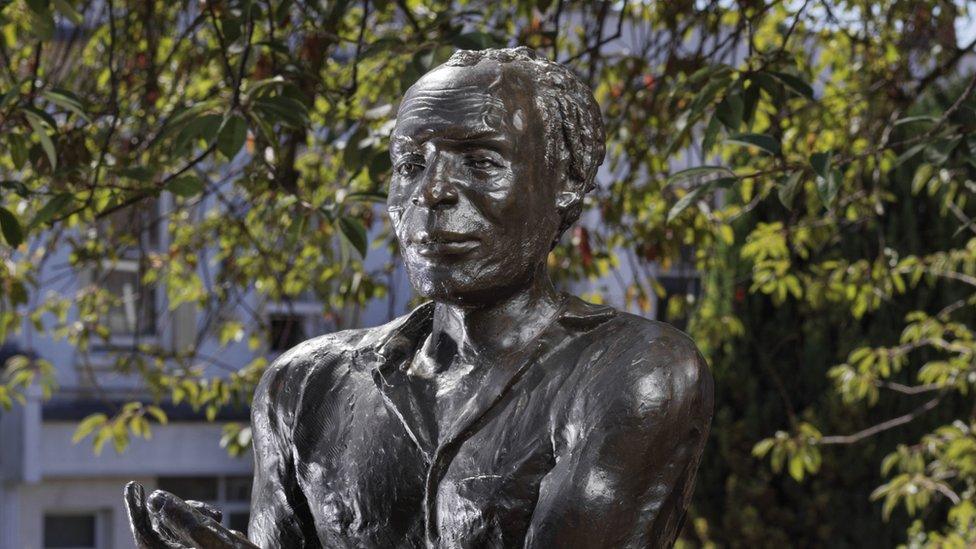Pablo Fanque: Leeds plaque for first black circus owner
- Published
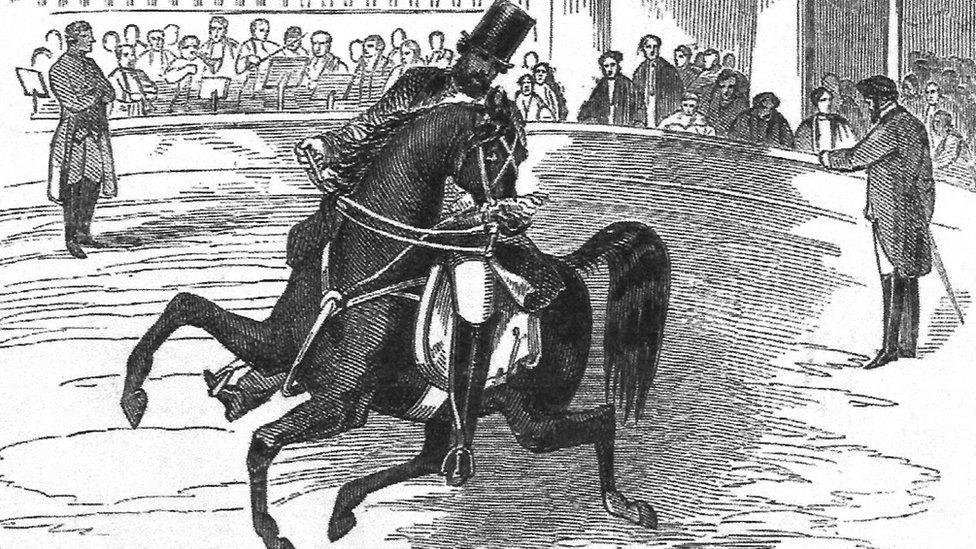
Pablo Fanque and his travelling circus wowed audiences across Victorian Britain
A blue plaque has been unveiled in Leeds for the man believed to be the first black circus owner in Britain.
Pablo Fanque's travelling circus toured Victorian Britain, wowing audiences with tight-rope walking, juggling, horseback tricks and acrobatics.
Fanque was immortalised in The Beatles song Being for the Benefit of Mr Kite, which was inspired by a poster seen by John Lennon advertising his circus.
Leeds Civic Trust unveiled the plaque on Lands Lane in the city.
The spot was chosen due to its proximity to the site of an 1848 circus collapse which killed Fanque's wife Susannah.
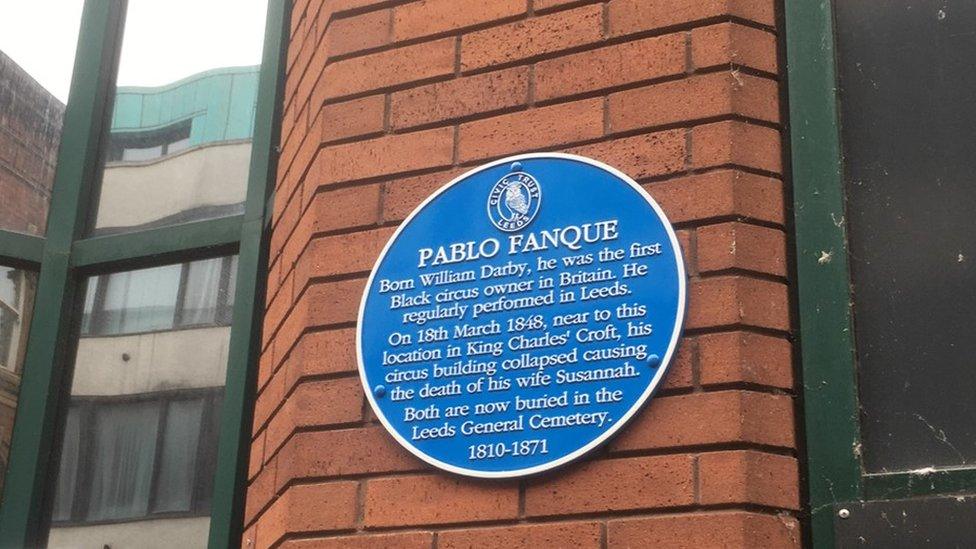
The plaque is sited on Lands Lane
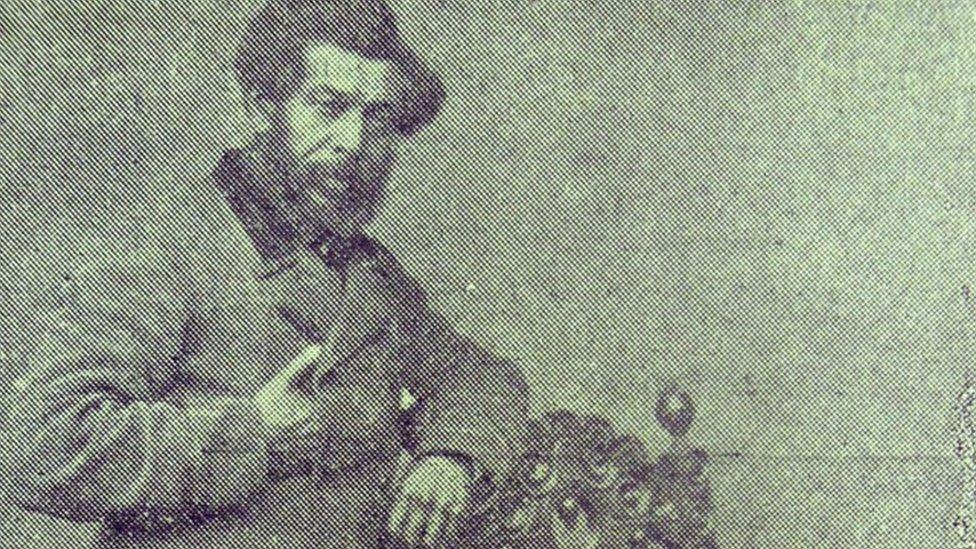
Pablo Fanque, born in Norwich, learned the skills of the circus from an early age and later saw great success
Fanque, who was born William Darby in a Norwich workhouse in 1810, was involved with the circus from a young age and started his own circus in the early 1840s, Leeds Civic Trust said.
Dr Steve Ward, a circus historian and author who has pushed for a plaque to remember Fanque, described him as an "acrobat, a wire walker and an equestrian" as well as a circus owner.
"He was an iconic figure of the black community at the time, if not even still today," Dr Ward said.
"At a time when to be black was not particularly well received, he was breaking new ground."

Blue plaque wording
Pablo Fanque
Born William Darby, he was the first Black circus owner in Britain. He regularly performed in Leeds.
On 18th March 1848, near to this location in King Charles' Croft, his circus building collapsed causing the death of his wife Susannah.
Both are now buried in the Leeds General Cemetery.
1810-1871

Dr Ward continued: "There were many performers in the circus of black, Asian and other minorities who underpin the work of the circus but are seldom mentioned, I think they should be valued, recognised and celebrated."
His circus proved "extremely popular" around the country, Leeds Civic Trust said, but he had a particularly strong affinity for the north of England.
"He spent a lot of time in the northern central corridor from Liverpool in the west through to Hull in the east, that was his main stomping ground," Dr Ward said.
"It has been one of my goals that the name Pablo Fanque is known in Leeds."
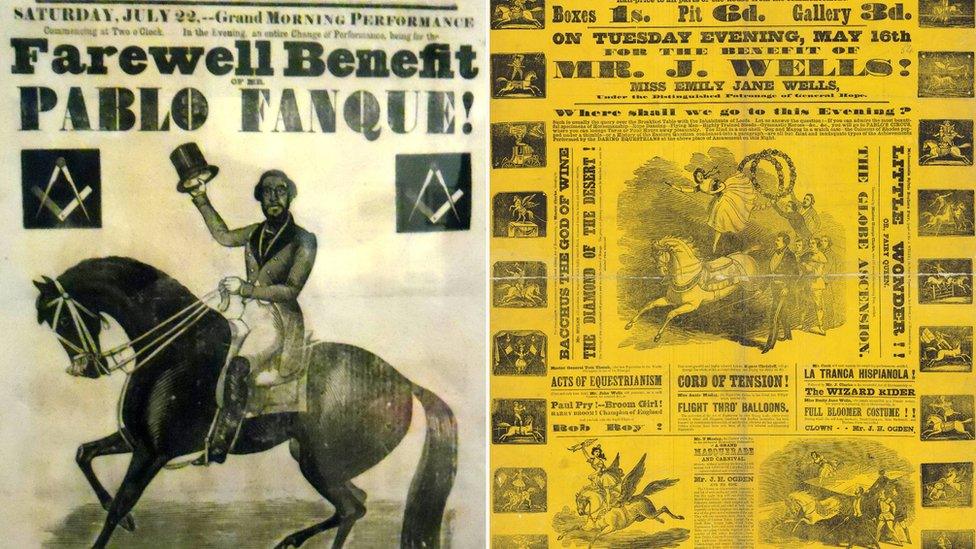
Posters advertising performances were seen around the country, with one promoting a Rochdale show catching John Lennon's eye in a shop decades later (Rochdale poster not pictured)
Being for the Benefit of Mr. Kite, which features on the classic Beatles album Sgt. Pepper's Lonely Hearts Club Band, was partly inspired by a poster advertising a Pablo Fanque circus performance in Rochdale.
"The story goes that John Lennon saw the poster in a shop window and bought it," Dr Ward said.
"The poster reads, 'for the benefit of Mr Kite' - for that particular night in Rochdale, the circus performer Mr Kite would have got the box office income for that performance."
Fanque's wife Susannah was buried in Woodhouse Cemetery in Leeds after the accident, with Fanque buried beside her after his death in 1871.

Follow BBC Yorkshire on Facebook, external, Twitter, external and Instagram, external. Send your story ideas to yorkslincs.news@bbc.co.uk or send video here.
- Published5 October 2022
